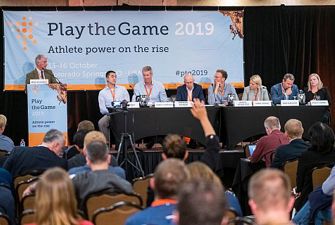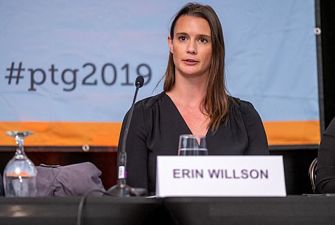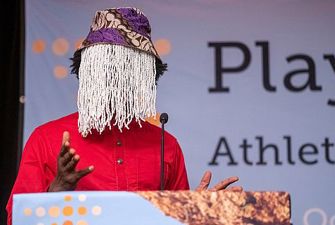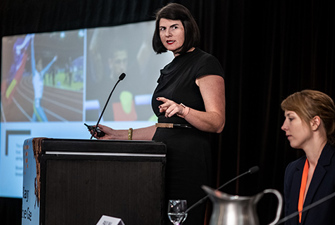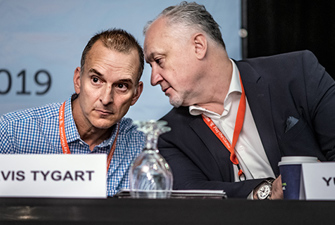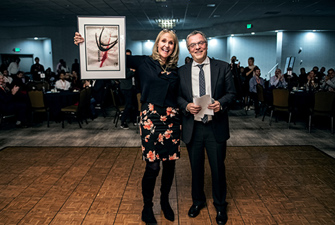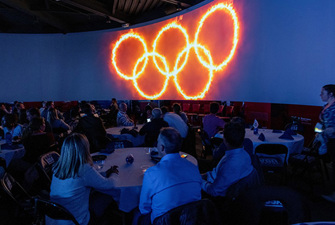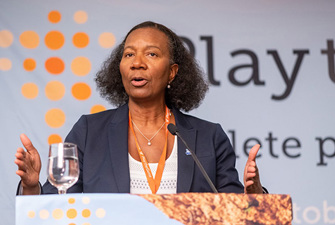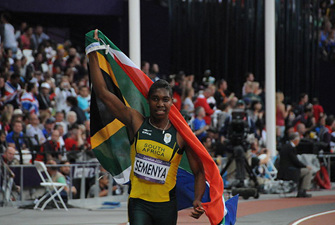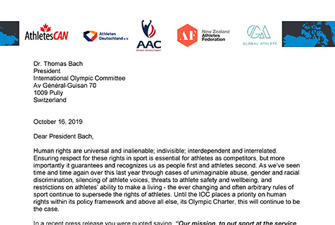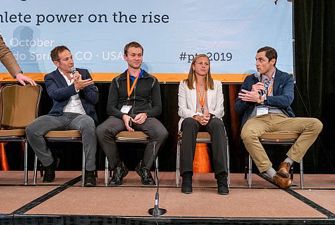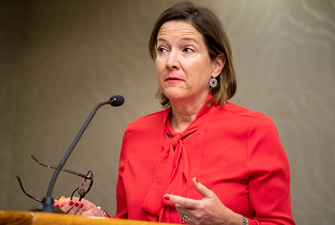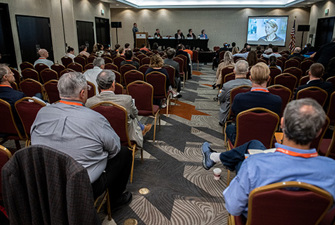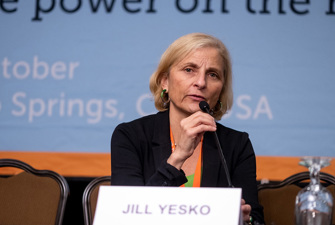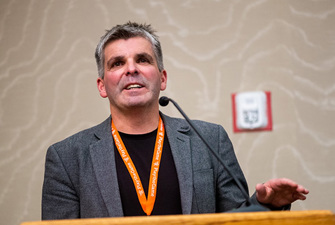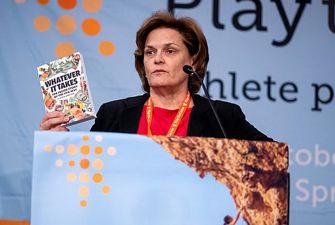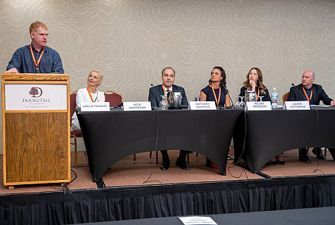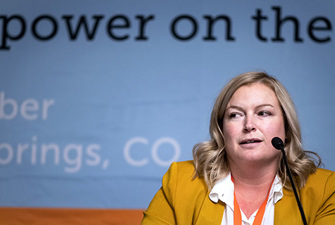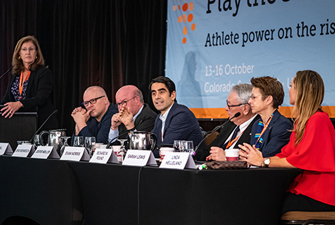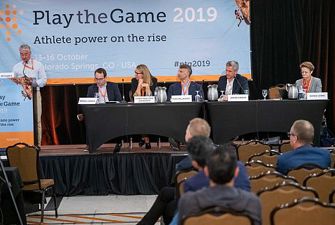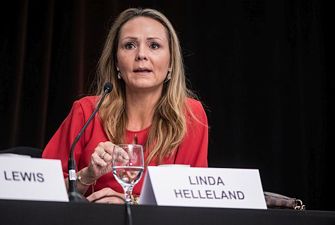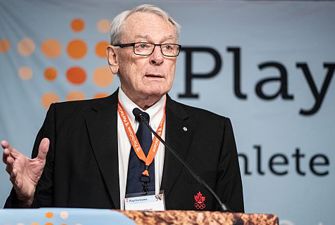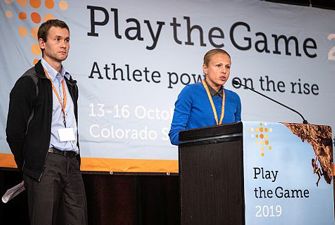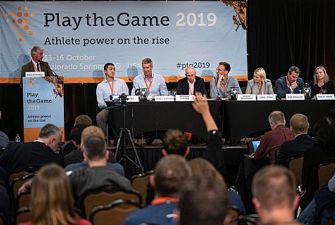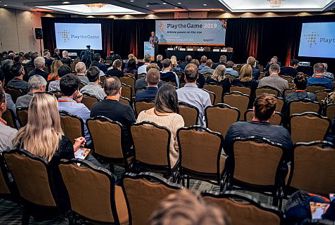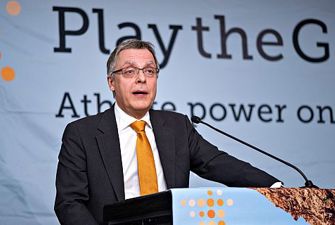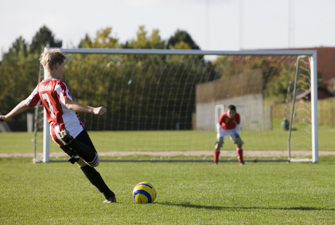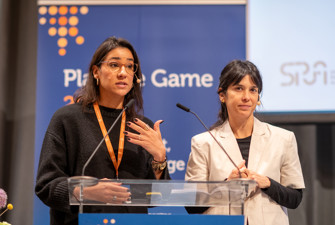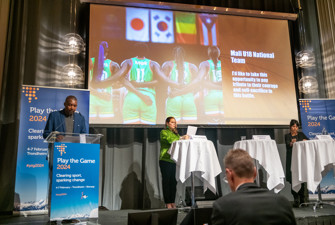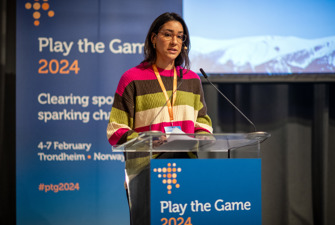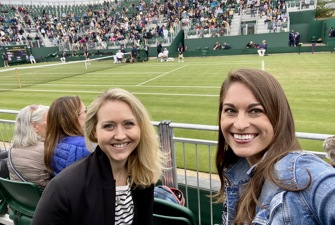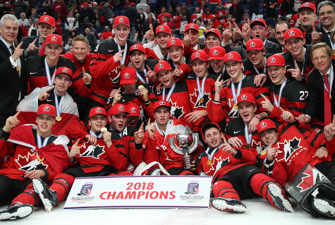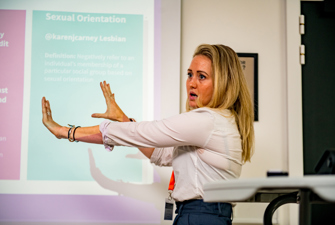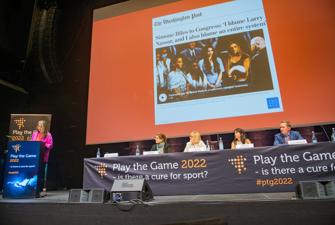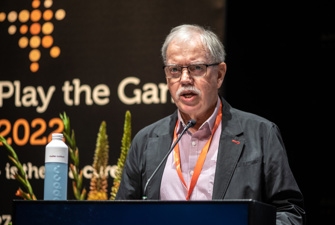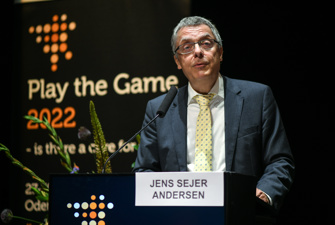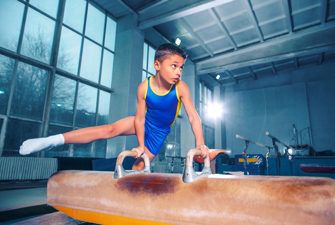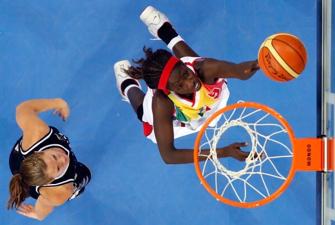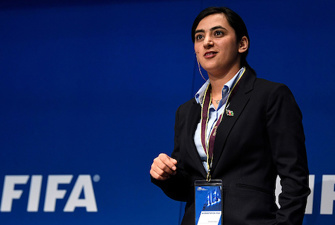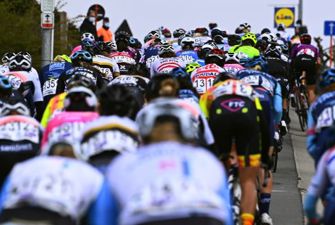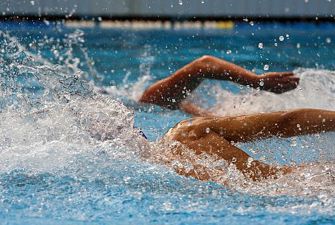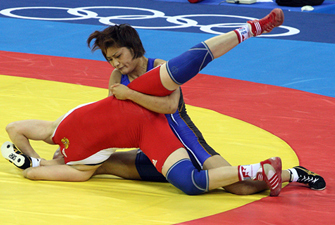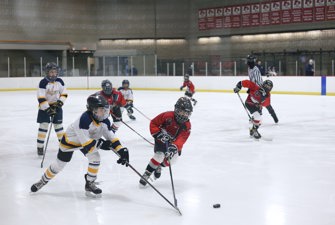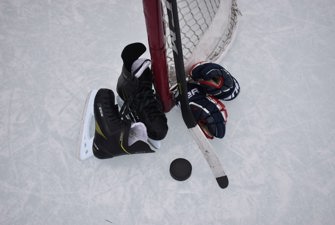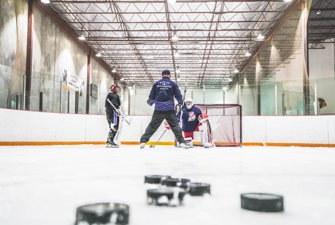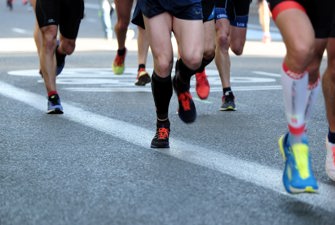Sport: A safe haven for athletes?
U.S. gymnastics coach Larry Nassar abused at least 250 young women and girls before his crimes were exposed. Why was he allowed to continue offending for so long? And what can we learn from such cases?
While acknowledging that sport can bring huge benefits, Mary Harvey, CEO of the Centre for Sport and Human Rights, told Play the Game 2019 that young athletes are especially vulnerable to abuse. “Sport can damage and destroy lives,” she said. ”It attracts predators. We have very high expectations when it comes to the safety of our kids in the educational system. But when you drop your child off at baseball, at soccer practice, are you sure that the same safeguards are in place?”
Although cases like Nassar’s make the headlines, she said the abuse of power can take many forms. Sportsmen and women, she said, should demand similar protections to those given to people in conventional education and employment situations.
Nancy Hogshead-Makar, Olympic medallist and founder of the sports accountability organisation Champion Women, agreed that athletes can be particularly vulnerable to abuse. Their relationships with their coaches, she pointed out, is by its nature very intimate, which increases the potential for harm. While boundaries are often ill defined, she said, athletes are expected to talk about their bodies with their coaches and touching is seen as normal. Until recently, she pointed out, romantic relationships between coaches and athletes were seen as more acceptable than other relationships rooted in unequal power structures.
“We need to move beyond emotional responses and engage in rational thinking” she said. “We don’t need to think so much about protecting athletes. We need to empower them”.
The U.S. had taken a positive step with the enactment of the SafeSport Act, she said, which introduced a legal duty of care for sports organisations to protect young athletes and expanded the list of individuals required by law to report abuse.
Marci Hamilton, CEO of the anti-child abuse think-tank Child USA, warned that systemic child abuse could exist across the entire sports structure. The SafeSport Act, she said “cannot achieve what it needs to achieve” as it allows on mandatory secret arbitration when accusations are made. “We need the name of every coach who is being investigated,” she said. “We need to know who is talking. Safe Sport is still too secretive, too silent.”
Larry Nassar, Hamilton said, was allowed to continue abusing due to the failings of rafts of organisations and individuals. Michigan State University, the medical profession and numerous sports organisations should all shoulder blame, she said, while families and coaches should have spotted the warning signs. “We are not doing a good enough job,” she said. “We don’t have enough knowledge about abuse in sport, but we do know that athletes are often abused as children.”
“Many sports have issues that are not heard about in the press” she said. “The Nassar case is not unusual. There will be more. What we lack is the truth about what’s actually happening on the ground. Our children are not safe. We have so much work to do.”
Her organisation, she said, is on the verge of publishing an open database containing exhaustive details of the circumstances surrounding Nassar’s crimes, which will be made available to all those seeking to understand how the abuse was allowed to occur. Public hearings are also planned, with evidence from whistleblowers, survivors and child abuse experts.
An end to the statute of limitations for child sex abuse is urgently needed, she said, as the average of victims coming forward with allegations of historic abuse is 52. “How do you empower victims? You give them the legal power to hold abusers to account” she said. “You give them the power to sue.”
Ju’Riese Colon, CEO of the U.S. Center for SafeSport, detailed a major spike in the number of reports of abuse received by her organisation. Around 3,000 reports are expected to be made this year, she said, and this number is expected to rise further in the future. “The publicity surrounding Nassar and other serial abusers had likely prompted others to come forward, she said, adding that “We must have a clear definition of what is acceptable and what is not […] Education is a key component.”
Per Nylykke Head of Department of International Relations from the Danish Ministry of Culture, detailed his nation’s existing anti-child abuse program which entails requiring adults working with children to apply for ‘children’s certificates.’ “The program is not limited to sport, he said, and covers both volunteers and employees. The act of not applying for a certificate is in itself a criminal offence.
